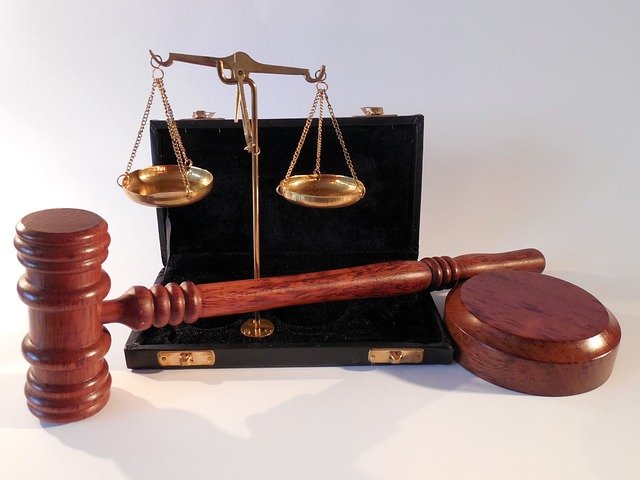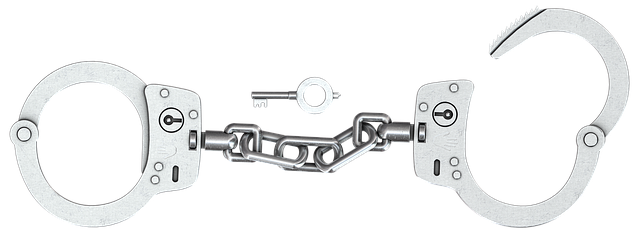Expungement Michigan 2020
Note: Because of the high volume of inquiries we get, we cannot offer free consultations to people with expungement questions. If you need our help, you should read carefully, fill out the form below, and pay the non-refundable fee of $90 for us to review your form and discuss it with you.
If you want to know if you qualify to ask for an expungement of the Michigan public record of your conviction, read the information below very carefully. Be aware that you cannot expunge a federal conviction. Those are done by a presidential pardon and they are extremely rare. The following provisions are from the Michigan Expungement Statute; MCL 780.621:

- You must have only one felony conviction on your criminal record, and no more than two misdemeanors to ask the court to set aside the public record of your felony conviction.
- If you have up to two misdemeanor convictions and no felonies, you can ask the court to expunge the public record of one or both misdemeanor convictions.
- If you have been convicted of a violation or attempted violation of fourth-degree criminal sexual conduct before January 12, 2015, you may ask the court to set aside the public record of the conviction if you have not been convicted of another crime other than two “minor offenses.”
- Five years must have lapsed since the last day of jail, sentence, probation, or discharge from parole, whichever is later.
The Clean Slate Bill

After the Clean Slate bill (signed October 13, 2020) comes into effect, the following new criteria will be in effect:
- Two felonies and four misdemeanors is new “cap limit”;
- Murder, some drugged driving charges, and harming minor child charges are still exempt from expungement;
- Marijuana charges would be permissible for expungement, provided they are committed after December 6, 2018, when recreational marijuana became legal for adults in Michigan;
- Many traffic offenses where there is no serious loss of life will be eligible for expungement;
- Consolidation of offenses within the same 24-hour period may be allowed where an exceeding of the felony and misdemeanor “cap limit” occurs;
- Leniency may be applied for charges sustained while defendant was a minor;
- Automatic process for setting aside eligible misdemeanors after seven years and eligible non-assaultive felonies after ten years;
- Revision of waiting periods before being eligible to apply for expungement;
- Eligible felony convictions can be expunged after ten years, provided no other crimes have been committed;
What Will Stay The Same?

Michigan law allows for the deletion of all or part of the Michigan public criminal record of certain criminal offenders. This does not apply to convictions in federal courts.
Expungement is called a Motion To Set Aside A Conviction. There are strict requirements that a person must meet in order to be granted an expungement. An expungement means to seal a public record of a state conviction.
For purposes of the expungement law, “conviction” is defined as a judgment entered by a Michigan court upon a plea of guilty, guilty but mentally ill, nolo contendere, a jury verdict, a court finding a defendant is guilty, or a court finding a defendant guilty but mentally ill.
In addition, a deferred or dismissed conviction under certain circumstances, whether a felony or misdemeanor, will be considered a misdemeanor conviction for purposes of eligibility. These include:
- Minors buying or in possession of alcohol
- Admission into drug treatment or veterans treatment court
- Under the Holmes Youthful Training Act Sentencing (HYTA)
- Michigan Domestic Assault Deferral
- First-time drug use or possession discharge (7411)
- Parental kidnapping
- Licensed health professional practicing under the influence of drugs or alcohol
- Other similar laws that provide deferral or dismissal of a misdemeanor or felony
What criminal records can be expunged in Michigan?

A person who is convicted of soliciting or engaging in prostitution-related crimes may ask the court to set aside the conviction if forced into the activity as a victim of human trafficking. The application may be filed at any time after conviction, for one or more offenses.
“Minor offense” is defined very narrowly under the law. The law states, “minor offense means a misdemeanor or ordinance violation for which the maximum permissible imprisonment does not exceed 90 days, for which the maximum permissible fine does not exceed $1,000.00, and that is committed by a person who is not more than 21 years of age.”
If, and only if, a person meets the above requirements, he or she is then eligible to apply to the court for expungement of his or her Michigan criminal record. The lengthy application process involves the gathering and drafting of specific documentation and court records. With the Clean Slate law (which was passed in October of 2020), the standard for expunging certain crimes has changed. Examples include:
- Automatically-expunged crimes are removed from your public criminal record when the statute of limitations has run
- Application-expunged crimes are removed from your criminal record if the case is made after the statute of limitations has run, the case is brought before the court, and the judge accepts the application
- Applications for expungement are accepted for the most recent conviction
- The “bundling” provision of the previous expungement statute no longer applies broadly, and it must fit within narrow exceptions set forth in the Clean Slate bill
What can’t be expunged in Michigan?

Convictions of certain offenses will disqualify you from being granted an expungement. In addition to all federal convictions, those include:
- A felony for which the maximum punishment is life imprisonment or an attempt of such a felony (this includes Criminal Sexual Conduct in the First Degree and other crimes)
- Child Abuse in the Second Degree
- Possession of child sexually abusive material (Child Pornography)
- Using a computer to commit certain crimes
- Criminal Sexual Conduct in the Second Degree
- Criminal Sexual Conduct in the Third Degree
- Assault with Intent to Commit Criminal Sexual Conduct
- Assault or Attempted Assault
- Traffic offenses, including operating while intoxicated, accident causing serious injury, or accident causing death
- Felony conviction for domestic violence, if there is a previous misdemeanor conviction for it
- Acts of terrorism
- Human trafficking enterprises
- A crime of dishonesty or attempt to commit a crime of dishonesty
- A violation of Michigan laws listed under chapter XVII of the code of criminal procedure, 1927 PA 175, MCL 777.1 to 777.69, the elements of which involve a minor, vulnerable adult, injury, or serious impairment or death
The Benefits of an Expungement:

An expungement may be the best investment that you could ever make. The benefits include, but are in no way limited to:
- telling a prospective employer that you have not been convicted of a crime;
- being eligible for student loans;
- being eligible for housing assistance;
- being eligible for more types of professional licenses and certificates;
- telling friends and family that you have not been convicted of a crime;
- stop fearing or being embarrassed when someone does a background check on you.
An expungement eliminates all public records of the single criminal conviction. An expungement will not hide criminal convictions from the courts, police, judges, or the government.
Don’t let a public view of your criminal conviction be a shadow on your life. By expunging your record, if you qualify, you can legally and honestly say that you have not been convicted of a Michigan crime!
How do you apply to have your record expunged?
An application will be considered invalid unless it contains all of the information required by the court. It is important to have attorneys representing you who understand the process of expungement and can work quickly and efficiently to obtain all of the necessary documentation.
Upon a petition to the court, the court will weigh your “circumstances and behavior” against the “public welfare.”
In other words, the petitioner has the burden of proving to the court that his or her actions and behavior from the date of the conviction until the time of the application are consistent with the goals of protecting public welfare and warrant the expungement of the criminal conviction. If a petition is denied, you cannot file another petition concerning the same conviction for 3 years from the denial date, unless an earlier date is specified by the court.
Different rules apply when petitioning the court to set aside juvenile adjudications.
When a person is found “guilty” of a crime in juvenile court versus regular, adult court, it is known as a “juvenile adjudication.” It is not the same thing as an adult conviction, and in some cases, the adjudication does not appear on the juvenile’s public criminal record. However, there are some instances where a juvenile adjudication goes onto a public criminal record, and those people may be interested in obtaining an expungement of their criminal record. Talk to an experienced attorney about the special rules involved in setting aside a juvenile adjudication.
If You Are Interested in Asking For an Expungement:

At The Kronzek Firm, before we accept an expungement case, we must determine if the person is eligible to have their conviction set aside. If you are interested in having us determine your eligibility for an expungement, please download the expungement information form, fill out the form completely, obtain a money order or certified check for $90.00 made payable to The Kronzek Firm PLC, and mail the form and payment to our main office. Do not mail anything to our other offices:
The Kronzek Firm
420 S. Waverly Road, #100
Lansing, Michigan 48917
The $90.00 payment is non-refundable and allows us to spend the time and resources to obtain and review your Michigan criminal record. If you do qualify to ask for an expungement, you can then hire us to pursue setting aside your public criminal record. Cost for such representation will be determined on a case-by-case basis.
Once we receive your completed form and payment, you will hear from an attorney within 10 business days regarding your expungement request.
Please note:
We do not take phone calls on this subject prior to a completed form and payment being received by our office. This $90.00 payment is required to complete the criminal records search to verify that you do qualify for the expungement process. We do not handle requests to expunge criminal records in any state other than Michigan. We do not do federal expungement or pardon requests.
Our experienced attorneys look forward to reviewing your record to determine whether you qualify to ask the court to eliminate any public record of your conviction!
More Information on Expungement in Michigan
- New ‘Clean Slate’ Legislation Reform Michigan’s Expungement LawsIf you follow our blog here on The Kronzek Firm’s AggressiveCriminalDefense.com site, then you already know we discuss expungement whenever it happens to come up here in Michigan. And while there’s been a lot of dialogue over the years regarding the introduction and passage of an expungement bill package, we can finally share with you… Read more: New ‘Clean Slate’ Legislation Reform Michigan’s Expungement Laws
- New U of M Study Proves Expungement Removes Barriers to Employment in Michigan (Pt 2)Welcome back and thanks for joining us again here at The Kronzek Firm. We’ve been talking about the issue of expungement of criminal records, and how it affects people’s ability to get a decent job. As we mentioned in the previous article, a recent study done by researchers at U of M now provides empirical evidence… Read more: New U of M Study Proves Expungement Removes Barriers to Employment in Michigan (Pt 2)
- New U of M Study Proves Expungement Removes Barriers to Employment in Michigan (Pt 1)This year, University of Michigan Professors Sonja B. Starr and J.J. Prescott released the first-ever broad-based empirical study of what happens when state law limits the public’s access to criminal records. The reason? To see how expungement might affect a person’s future, either positively or negatively. And the results are significant. Why this study was… Read more: New U of M Study Proves Expungement Removes Barriers to Employment in Michigan (Pt 1)
- A New Bill Package Would Make Michigan’s Expungement Requirements EasierBi-partisan bill packages are usually the ones that move through the House and Senate quickly, having garnered support from both sides of the political aisle. It is interesting to see that this particular collection of potential laws addressing expungement issues in Michigan has received such wide support, both within the legislature and within various communities… Read more: A New Bill Package Would Make Michigan’s Expungement Requirements Easier
- Expunging Criminal Records Makes Life Easier, But The Process Is Difficult! (Pt 2)Welcome back and thanks for joining us again. In the previous article on having your criminal record expunged in Michigan, we talked about why the process can be challenging, and how some crimes simply aren’t eligible for expungement. However, Michigan isn’t at the forefront of the race to erase criminal records and better people’s lives.… Read more: Expunging Criminal Records Makes Life Easier, But The Process Is Difficult! (Pt 2)
- Expunging Criminal Records Makes Life Easier, But The Process Is Difficult! (Pt 1)Having a criminal record can affect almost every part of your daily life. From your ability to find housing in a safe neighborhood, getting a good job, to enrolling in school, prior convictions make life hard. So what’s the solution? Well, the simple answer would be to have that record expunged so it doesn’t continue… Read more: Expunging Criminal Records Makes Life Easier, But The Process Is Difficult! (Pt 1)







